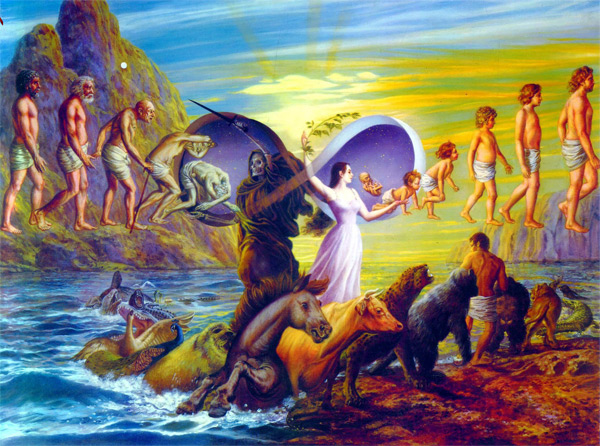Everyone wants to become God, imitator. Imitation. Therefore they say, "Why Kṛṣṇa shall be alone God? I am God."
You are God. That's all right. But you are not the Supreme God. Why you forget that? You may be a God at home of your wife, but when you go to your office, you are not god; your master is god. He directs you to do something; you have to do it.
So we may claim that "Every one of us, we are God," but nobody can claim that "We are supreme; I am Supreme God." That is not possible. That can, Kṛṣṇa can claim only. Mattaḥparataraṁ nānyat kiñcid asti dhanañjaya: [Bg. 7.7] "My dear Dhanañjaya, there is no more superior personality than Me." And He proved it. So God cannot be manufactured. God is God.Kṛṣṇa, when He was three months old on the lap of His mother, still, He was God. He could kill the Pūtanā. So God cannot be manufactured by so-called meditation and mystic power. You can get some of the insignificant powers of God, but simply, but you do not know how much powerful is God. That you do not know. Therefore when a person gets little power, he thinks that he has become God. He does not know how much powerful God is.
So therefore śāstra says that "You may be god in your own atmosphere, in your own jurisdiction. You may think that you are God." And everyone thinks like that. "But the Supreme God is Kṛṣṇa." Eko yo bahūnāṁ vidadhāti kāmān. In the Upaniṣads it is said that God is also a person like me, you. Nityo nityānāṁ cetanaś cetanānām (Kaṭha Upaniṣad 2.2.13). But His personality is different from your personality, from my personality. What is that difference? Ekoyo bahūnāṁ vidadhāti kāmān: "He supplies all the necessities of all other personalities." That is the difference. God is supplying us food. This conception is there in the Bible, "God, give us our daily bread." This is nice. Accepting that you are getting all supplies from God...
(Excerpt From A Lecture Given on Bhagavad-gītā Chapter 1.15—London, July 15, 1973, given by His Divine Grace A.C. Bhaktivedanta Swami Prabhupada)





